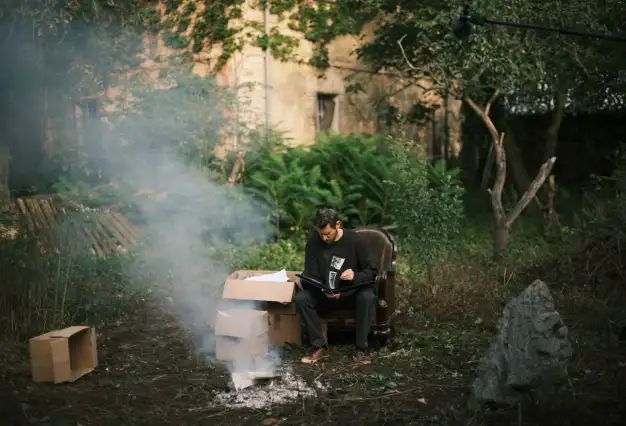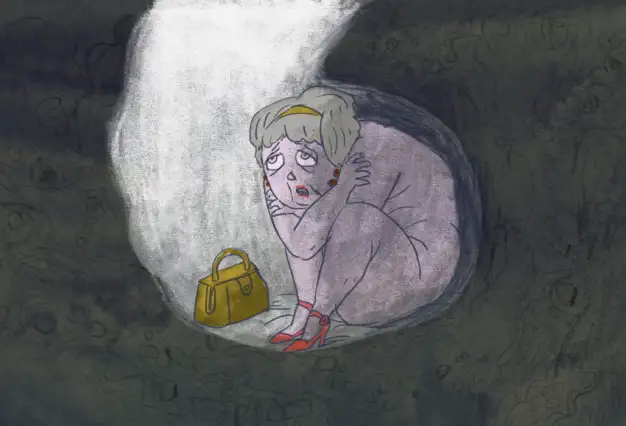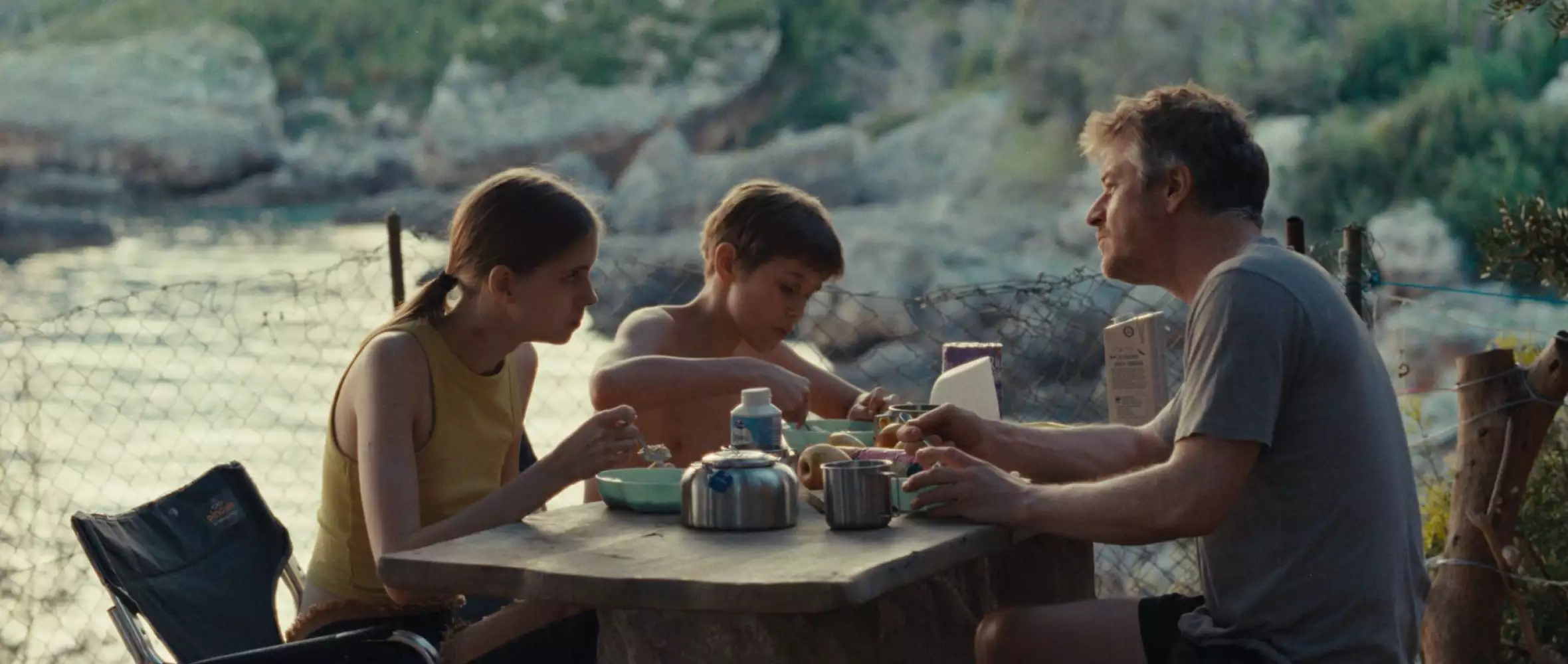
20 August 2024
Teenage rebellion, lies, and parenting
Teenage rebellion, lies, and parenting

A family vacation goes awry in Olmo Omerzu’s latest, a family dramedy exploring the borders of parenting and the complexities of adolescence. The director’s fifth feature cements his long-standing creative partnership with endorfilm producer Jiří Konečný, who says the latest work is their most ambitious project together to date. Shot in Croatia and the Czech Republic, and boasting an international cast with dialogue mostly in English, Ungrateful Beings examines the moral dilemmas between children and their parents.
by Martin Kudláč for CZECH FILM / Fall 2024
Contemporary Czech cinema has no more-established producer-director team than Slovenia-born, Czech-based writer-director Olmo Omerzu and veteran producer Jiří Konečný of the production company endorfilm. Konečný has produced all of Omerzu’s works, from his 2012 coming-of-age drama A Night Too Young, which premiered at the Berlinale, up to his recent Bird Atlas, about the consequences of online romance scams.
Omerzu’s sophomore feature offering, Family Film, premiered at San Sebastian and established him as a talent to watch in Czech cinema. His third feature, Winter Flies, garnered him Best Director at the 2018 Karlovy Vary International Film Festival and multiple Czech Lion awards, as well as the honor of representing the Czech Republic in the Oscar race. Bird Atlas, his fourth feature, premiered in the main competition at Karlovy Vary in 2021 and received nine Czech Lion nominations.
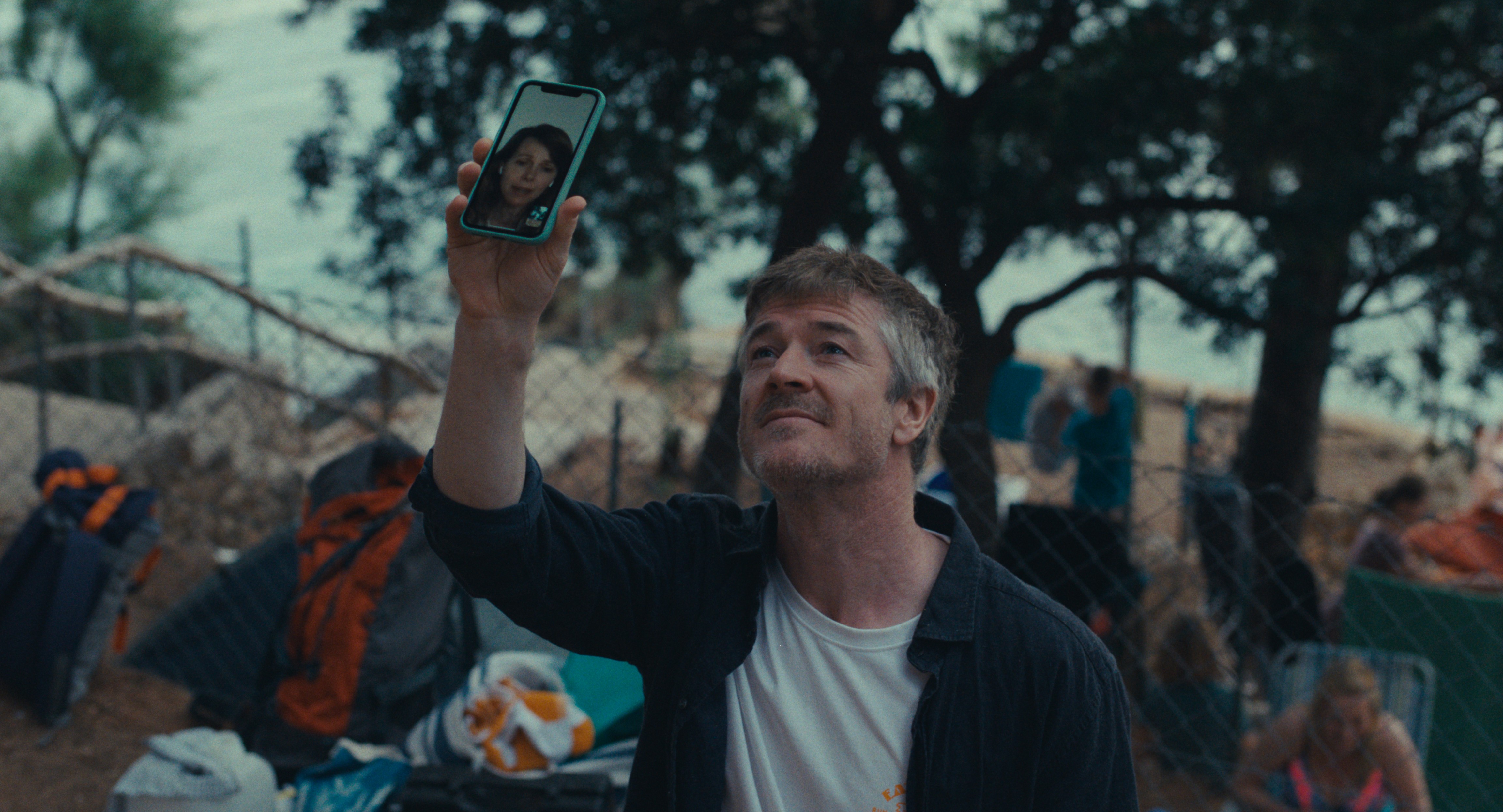
Parenting gone coastal
Ungrateful Beings begins with a seemingly idyllic family scenario. David, a recently divorced middle-aged father, takes his teenage children, 13-year-old Teo and 17-year-old Klára, on a vacation to a coastal campsite in the Adriatic. The serene seaside holiday setting starkly contrasts with the turbulent emotions and underlying tensions within the family.
Klára, struggling with mental anorexia, finds unexpected solace and acceptance in Denis, a local youth. Denis’s genuine, nonjudgmental attitude toward Klára’s appearance sparks a transformative change in her, leading to significant improvements in her condition. The budding relationship appears to be a beacon of hope for Klára’s recovery, and even David, initially wary of Denis, begins to accept his presence.
However, the tranquil setting soon gives way to a darker twist. The murder of Denis’s father plunges the characters into a vortex of suspicion and anxiety. Denis himself becomes a suspect, and David faces a moral dilemma, whether to protect his daughter by distancing her from a potential murderer, risking a relapse in her condition, or to ignore the warning signs for the sake of her happiness.
Omerzu has shared that Ungrateful Beings is closest in spirit to his award-winning Family Film, a point underscored by his reteaming with Family Film co-writer Nebojša Pop Tasić, while Kasha Jandáčková is also credited as a co-writer here. The film is divided into two parts. The first takes place during the vacation in Croatia, where David struggles to be a good parent to both his children, especially as Klára tests boundaries, such as luring her father to a nudist beach. The second unfolds at home in the Czech Republic, where Klára’s eating disorder lands her in the hospital, prompting both parents to intervene.
To save their daughter, David and his ex-wife begin posing as Denis in text messages to Klára, in a desperate attempt to aid her progress toward better health. Just when it seems that each family member (with one notable exception) is navigating the situation successfully, the fragile peace turns out to be precarious. The slow erosion of values and dignity can only be halted by a decisive action—one that someone must be compelled to take.
Of fathers and daughters
Omerzu’s film boasts an international cast. Irish actor Barry Ward, who starred in Ken Loach’s Jimmy’s Hall and Netflix’s The End of the F***ing World, portrays David, the hapless father grappling with his own insecurities and the challenges of parenthood. Slovak-born, Italy-based, award-winning actress Barbora Bobuľová, known for her roles in Nanni Moretti’s A Brighter Tomorrow, and as the eponymous fashion designer in Christian Duguay’s biopic drama Coco Chanel, makes her Czech-Slovak cinema comeback here as Laura, David’s ex-wife. Their children are played by newcomers: Dexter Franc stars as Klára and Antonín Chmela as Teo. This blend of professional and nonprofessional actors is a signature of Omerzu’s work.
The character of Klára is particularly challenging, as she must not only embody teenage rebellion but also convincingly portray someone with a frail body due to anorexia. Omerzu said as soon as he saw Franc in casting, he was confident she could deliver the nuanced performance he envisioned. The role of “bad boy” Denis is played by Slovenian actor Timon Šturbej, named a European Shooting Star in 2022. Šturbej won Best Actor at the Teatralny Koufar festival for his role in Molière’s Psyché and the Vesna Award for his performance in the Darko Štante film Consequences.
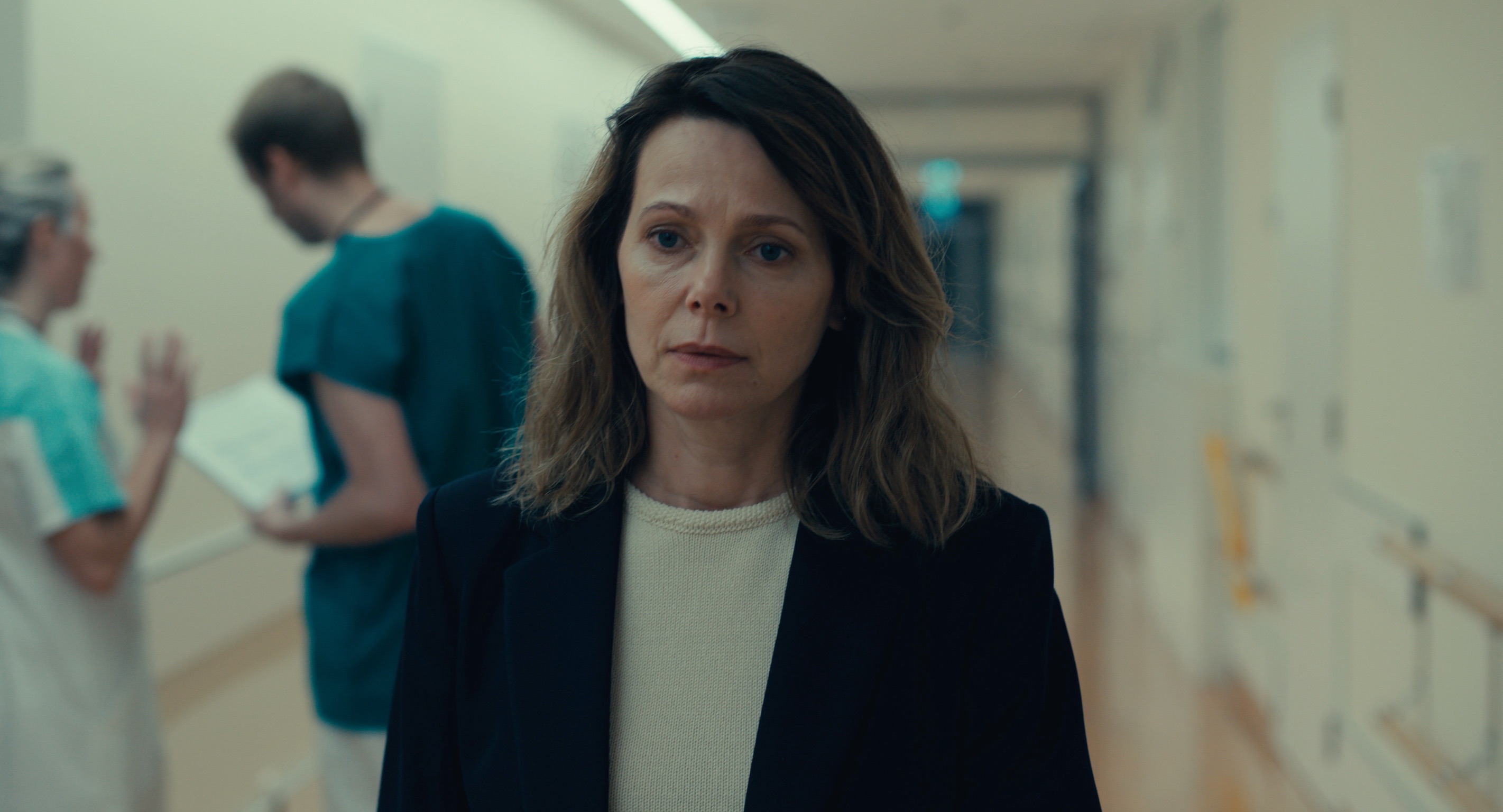
One distinctive feature of Ungrateful Beings compared to Omerzu’s previous works is its approach to language. Unlike many films that simplify multilingual interactions, the film embraces the complexity of a bilingual household and Klára’s relationship with a foreigner, with characters navigating their relationships in a blend of languages. The director emphasized the importance of extensive rehearsals and collaboration with the actors to explore the natural flow of dialogue, ensuring a realistic and engaging portrayal of the characters’ struggles.
Denis and Klára communicate in broken English, a disjointed yet universal form of the language. This highlights the characters’ emotional and relational disconnections, and lends their dialogue a musical, poetic quality, distinct from the father’s fluent, flawless English. Omerzu, who lives in a multilingual environment, here draws on his personal experience to portray the challenges and irrationalities of switching languages within a family context. This also means the majority of the dialogues are in English, making Ungrateful Beings essentially ready-made for English-speaking markets.
Ungrateful Beings also marks the first time Omerzu has worked with an intimacy coordinator on set; for this project it was Jana Neustupová, the first certified Czech intimacy coordinator. Even though the film doesn’t contain many sex scenes and the nudist camp scenes aren’t graphic, there are various layers of intimacy to the story. The director relied on Neustupová’s collaboration with the cast to explore and navigate these layers effectively.
While the core of the story is the father-daughter relationship, Omerzu focuses on the father’s perspective—his helplessness, indecision, cowardice, confidence, vulnerability, and compassion—a rarely depicted viewpoint in these types of films, which tend to highlight children’s alienation from their parents. Still, Klára remains central, creating conflicts and placing her parents in uncomfortable situations, with her illness being their shared burden. Omerzu does not attribute anorexia solely to family dysfunction, but acknowledges that negative parenting patterns can influence a child’s development.
The director emphasizes that he aims to portray the dialogue between two different perspectives: that of the children and that of the parents, which in his opinion can never be on the same level. This approach allows for a richer exploration of the inherent disconnect and the emotional complexity within family dynamics. By presenting both viewpoints, the film seeks to illuminate the often-unseen struggles of parents while maintaining the children’s experiences at the forefront.
Between compassion and deceit
Omerzu hails from the generation of young filmmakers influenced in their style and approach by the auteur poetics of Michael Haneke, Catherine Breillat, Maurice Piallat, and Terence Davies. While Ungrateful Beings includes elements of coming-of-age drama that are present in most of Omerzu’s works, his latest film is more of a family drama—specifically, a psychological family drama infused with ironic and slightly absurd humor.
Ungrateful Beings features less dialogue than the director’s other recent works, emphasizing a plot-driven narrative based more on visuals and the actors’ performances. As Omerzu explores the moral provocations and dilemmas faced by both the daughter and her parents, tension arises from the disparity between their intentions and the means they use to achieve them, so that the audience may not condone the parents’ actions even while fully understanding their motivations. One example of this is when the parents tell a white lie to make their daughter feel better and end up manipulating her. The ethical ambiguity of the parents’ actions—lying to promote her well-being—sparks a tension that engages the audience, prompting them to grapple with the contradiction of the parents’ use of deceit in their attempt to show compassion for their daughter.
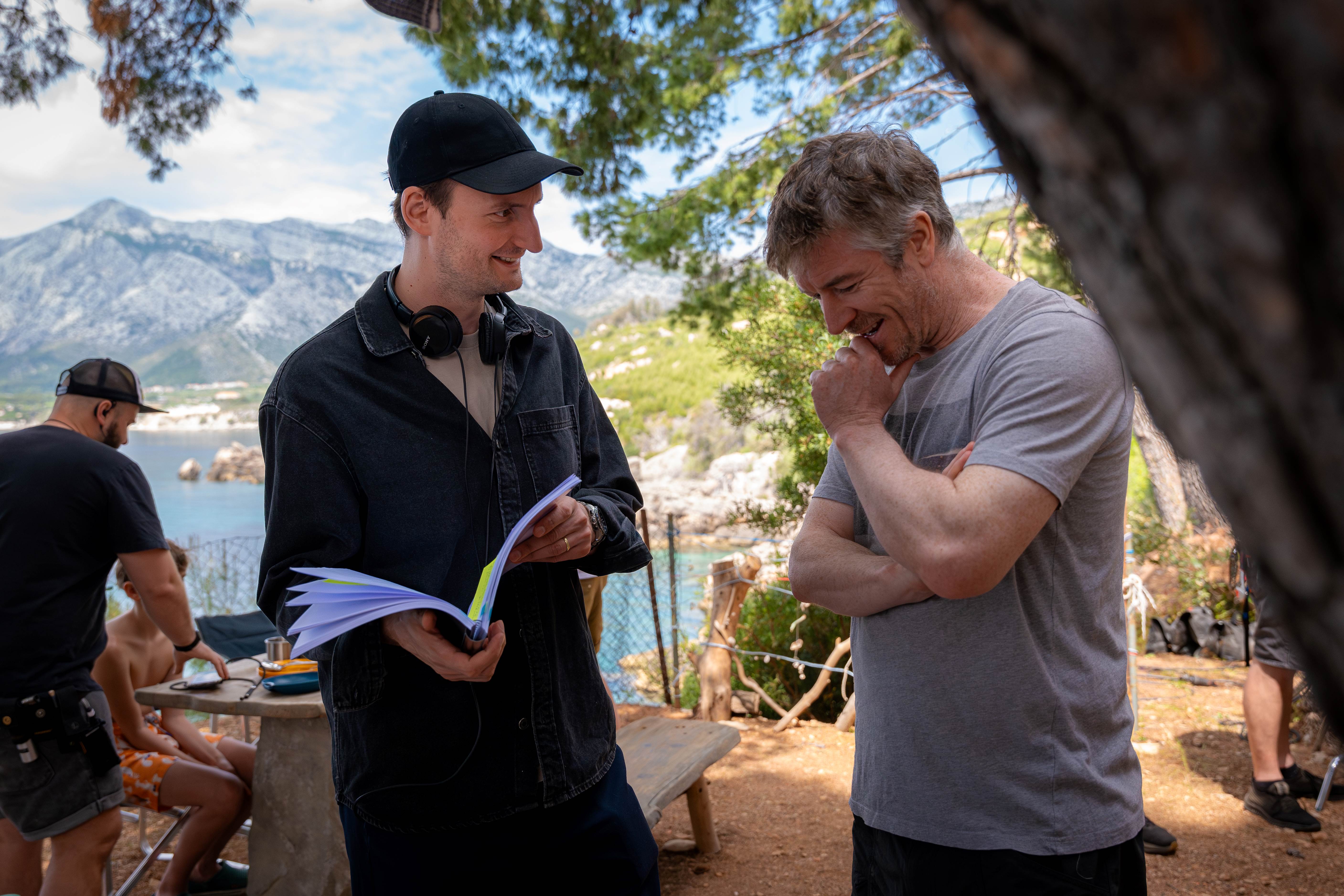
This time out, Omerzu joined forces with the young director of photography Kryštof Melka, known for his work on Borders of Love, the miniseries on sexual violence Five Years, and Diana Cam Van Nguyen’s award-winning short ani-docs Apart and Love, Dad. With their heavy reliance on visuals, the film’s creators adopt a distinct aesthetic approach, featuring two contrasting worlds: the simplified, exaggerated life of the summer campsite and its vibrant Adriatic setting, juxtaposed with the family’s more somber home life. This divergence provides Omerzu yet another means of delving deeper into the internal lives of his characters.
Ungrateful Beings departs from traditional realism, using vivid colors to transform the Adriatic into a lush, tropical-like jungle, contrasting with the typically barren, sun-scorched landscape. The filmmakers employ a diverse cinematographic toolkit, as each scene demands a different formalistic approach. Combining longer takes, handheld camera work, and tracking shots, they create a more physical, almost voyeuristic perspective. Despite this varied cinematography, the director emphasizes that the formalism remains subtle, keeping the primary focus on character-driven storytelling.
The principal photography has wrapped in July after shoots in Pelješac, Croatia, and in Brno, Pilsen, Kladruby and Prague in the Czech Republic. Editing will continue through September, with Omerzu teaming up with veteran Polish editor Jarosław Kamiński, who has worked on the award-winning films Cold War, Ida, and Quo Vadis, Aida?. Postproduction is expected to last until early 2025, with the film slated for delivery in spring 2025.
Ungrateful Beings is a five-country coproduction led by endorfilm. Konečný reunited for this project with international partners from previous Omerzu films, including Rok Biček of the Slovenian Cvinger Films and award-winning Slovak producer Ivan Ostrochovský of Punkchart Films. Ankica Jurić Tilić of Croatian Kinorama boarded the project as a coproducer after previously collaborating with Konečný on Radu Jude’s celebrated provocative dramedy Bad Luck Banging or Loony Porn. Last but not least, Mariusz Włodarski and Marta Gmosińska, from the Polish company Lava Films, which worked on Magnus von Horn’s Cannes-premiered The Girl with the Needle, also joined the fold. Additional coproducers are Czech TV, RTV Slovenija and Michal Sikora of Lonely Production. The project is supported by the Czech Film Fund, the Slovenian Film Centre, the Polish Film Institute, the Slovak Audiovisual Fund, the Croatian Audiovisual Centre, as well as the South Moravian Film Fund and the Pilsen Region, showcasing robust collaboration across Central Europe. The domestic premiere is slated for the second half of 2025, with local premieres in the coproducing countries to follow.
Omerzu says he is confident Ungrateful Beings’ exploration of family, adolescence, and parental dilemmas will resonate with a general audience, engaging viewers beyond the arthouse niche.



